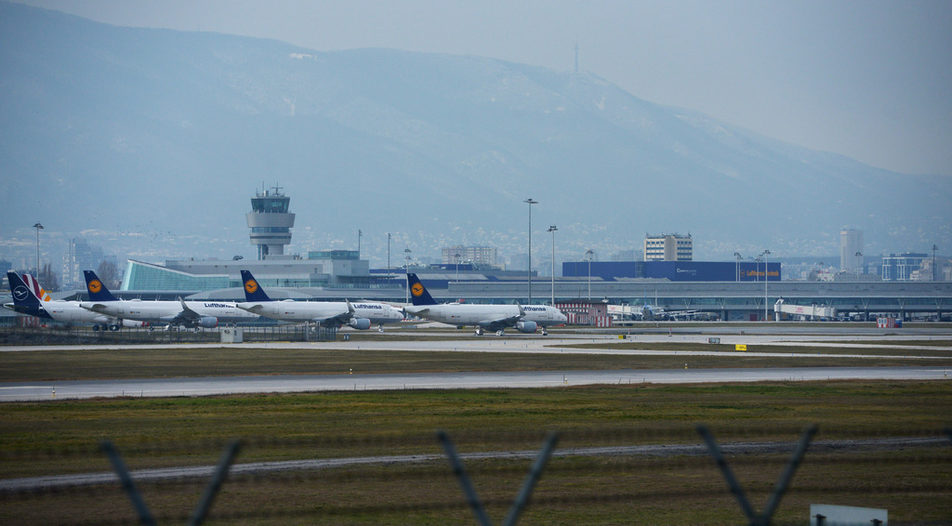Paris-based investment fund Meridiam, the leading member of the SOF Connect consortium awarded the concession to run Sofia international airport, is seeking the postponement of its obligation to pay concession fees during the first 10 years of its 35-year contract because of the coronavirus crisis, transport minister Rosen Zhelyazkov told parliament last week.
The consortium comprising Meridiam and Austrian construction company Strabag, with Munich Airport as the operator, committed to pay an annual concession fee equal to 32% of yearly revenue but no less than 24.5 million euro. According to the future concessionaire's proposal, the agreed fees will be paid in the last 10 years of the concession's term.
Awarding the concession to run Bulgaria's biggest airport is the largest deal the current government has made for a state asset. Meridiam's request follows a string of scandals surrounding the tender procedure, the choice of concessionaire and the fees.
The proposal
"On 27 October 2020, the concessionaire requested to restore the economic balance of the concession. The proposal includes a deferral of the payment of the annual concession fees due for the first 10 years of the concession period until the last 10 years of the concession period. The postponement of payments until travel industry recovers to 2019 levels is a measure for maintaining the balance of the concession due to the impact of the pandemic," Zhelyazkov said in parliament.
The selected concessionaire would still have to invest a sizable amount in the development of the airport. In its proposal, Meridiam fund suggests to increase the promised investments from 608 million euro to 624 million euro. It would also have to pay a lump sum of 660 million levs (337.5 million euro), VAT included, to the state budget this year and commit to the construction of a new Terminal 3 at the airport by the tenth year of the concession term.
For the request to be granted, it needs the approval of the European Commission's Directorate-General for Competition which is considering it now and the Bulgarian government is waiting for its decision. Yet the position of the cabinet is quite clear. "Only then (after the Commission's approval) will I submit a report to the Council of Ministers, and make the relevant proposal, which will mean to restore the economic balance of the concession," said the transport minister.
Strange details
First, it is rather unusual to notify first the European Commission about such a huge change in conditions, instead of Bulgarian taxpayers.
Second, the request for postponement is partially justified - the revenues in the first years of the concession will likely be weak considering the stress that the coronavirus has put on aviation. But a whole decade seems more than excessive, as air travel is likely to recover much faster.
And third, the government rushed to finalize the deal, signing the contract during the anti-corruption protests last summer, when it was already clear that the COVID-19 crisis would have a strong negative effect on aviation. Now, the concession agreement is about to be revised in the last days of the government's term of office, ahead of April 4 general election.
A long and exhausting procedure
The whole saga of the Sofia airport concession was riddled with questions. The GERB-led coalition government chose the candidate with the lowest investment pledge and the third highest concession fee. All the other candidates appealed the decision but Bulgaria's competition authority dismissed their complaints and the contract was rushed through during the pandemic.
In the summer, it was viewed as an emergency decision of a government already shaken by large-scale protests wanting to sign off on the biggest deal involving state-owned assets before leaving office.
At the end of October, it emerged that the state-owned operator of Sofia airport wanted to raise significantly the fees the airlines pay its services - a change that would endanger some of the connections the Bulgarian capital has with other European countries. It was seen as a move favoring the selected concessionaire who has promised that no fees will be raised until the completion of the new terminal - at least 10 years from now.
Paris-based investment fund Meridiam, the leading member of the SOF Connect consortium awarded the concession to run Sofia international airport, is seeking the postponement of its obligation to pay concession fees during the first 10 years of its 35-year contract because of the coronavirus crisis, transport minister Rosen Zhelyazkov told parliament last week.
The consortium comprising Meridiam and Austrian construction company Strabag, with Munich Airport as the operator, committed to pay an annual concession fee equal to 32% of yearly revenue but no less than 24.5 million euro. According to the future concessionaire's proposal, the agreed fees will be paid in the last 10 years of the concession's term.












